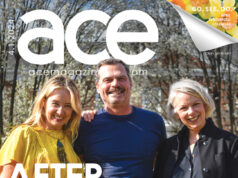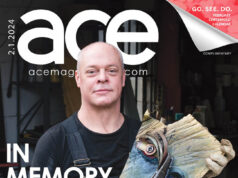On the late April weekend on which Transylvania University inaugurated its 25th President, the festivities were perhaps overshadowed by the announcement that the University of Kentucky had finalized the nomination for its own new President.
As R. Owen Williams – a former Wall Street investment banker and alumnus of Dartmouth, Cambridge, Harvard, and Yale – assumed his role as University President and delivered the charge to “Question Everything, Accomplish Anything” to a crowd of
past and present Transylvanians, many Kentuckians were busy googling Eli Capilouto’s CV and wondering how his vision for academic hospitals will fit into Lexington’s future. As alumni of both institutions, my fiancé and I stopped to note both the symmetry
of the dual administration shifts and the implications for each school’s role within the Lexington community. It’s an exciting time to be a Transylvanian; as Downtown Lexington seems to be entering an organic and aggressive growth cycle north of Main
Street, Transy is undertaking its own administrative paradigm shift toward the convergence of business and academia. With new leadership, enhanced community initiatives and the influx of nearby commercial growth, Transylvania, Lexington’s small 131 year old private liberal arts college, seems ripe for a dynamic partnership for community growth.
As undergraduates at Transylvania, and later as graduate students at UK, we heard many times the conventional wisdom that “Transy kids keep to themselves.” With parking, housing, and dining contained within a few University-owned blocks, Transylvania seems separate and self-contained, especially when held in comparison to huge area that comprises UK’s sprawling campus, offcampus neighborhoods and ever-expanding parking woes. Many of the “town-versus-gown” issues like zoning and representation that plague University of Kentucky students sound quite foreign to students tucked away in the quaint North Broadway enclave of Transylvania. Transy students park, study, eat, and socialize on-campus. This phenomenon, it seems, often results in both Transylvanians and Lexingtonians perceiving Transylvania as kind of a Northside Vatican City – conducting independent business within its own parameters.
The parameters that have kept Transylvania separate from the surrounding city have been dramatically eradicated recently. Downtown Lexington has increasingly trended toward Northern growth, with new restaurants, bars and shops within an evercloser
proximity to the Transylvania campus. Ten years ago, no Transy student could have imagined that the Doodle’s parking lot – the abandoned site of a garage-turned liquor store most famous for aggressive towing of non-authorized cars—would
be transformed into a trendy brunch spot with local, organic offerings. Transylvania students’ long wait for a walking-distance grocery store has finally ended with the recent opening of Shorty’s, which would be an amazing new amenity even without the cool bank vaultturned- freezer space. And, as Jefferson Street continues to expand its restaurant and bar selection – including the revival of perennial Transy hangout The Green Lantern – Transylvania’s campus no longer seems like an aging fiefdom in an underdeveloped portion of Downtown.
The Transylvania community, it seems, is also working hard to lose the perennial “keep to ourselves” image. Faculty, staff and students have undertaken the development of a community garden with the long-term goal of inclusion of their Northside neighbors.
The school recently received an LFUCG grant for the continuation of water quality improvement efforts such as stream cleaning efforts in the Town Branch watershed as well as the study and implementation of improved on- and near- campus water quality.
In addition to these sustainability efforts, Transy’s campus hosted many concerts and recitals during last autumn’s World Equestrian Games music festival. More and more, Transylvania is working to position itself as an integrated member of the Downtown Lexington community – providing not only the excellent academic resources for which the school is known, but also a commitment to sustainability, community service, arts and culture. No longer do Transy kids keep to themselves; the students, faculty and administration are working to integrate the Transylvania community with Downtown Lexington.
In light of Transylvania’s increased integration with the community, the selection of Owen Williams to lead the school is an intriguing proposition to many Transylvanians. A former Wall Street investment banker who left big-name brokerage houses for academia, Dr. Williams is poised to bring a businessman’s perspective to the historic University. Many students and alumni believe that Dr. Williams’ professional background will lead him to not only act as a responsible steward for the University’s endowment, but also to utilize his business acumen to redefine a historical school for the 21st century. By redefining Transy’s role as a community partner and resource, Dr. Williams can help shape the institution’s future in a dynamic and proactive manner.
As Downtown Lexington looks toward its future, both in terms of expansion and community growth, perhaps the inaugural words of Dr. Owen Williams should be on everyone’s mind. As we “Question Everything” by reconsidering Transylvania’s role as a partner in the Downtown Lexington community, we will be able to “Accomplish Anything.”







